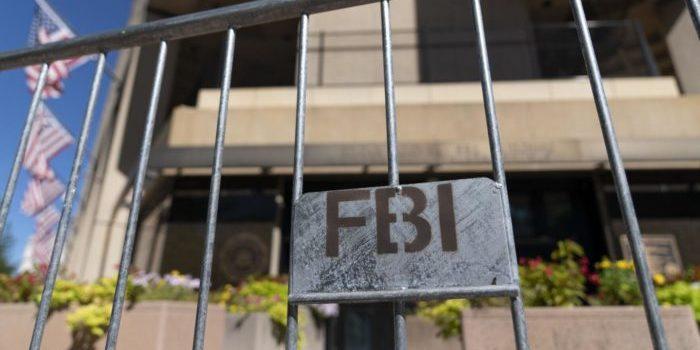(Ken Silva, Headline USA) On Feb. 6, an FBI contractor stole an agent’s vehicle and drove it to the Terrorist Screening Center in Vienna, Virginia—doing so after purportedly hearing “coded messages.”
Three days later, the contractor, John Conrad Worrell III, was out of jail; and in July, he was given a deferred prosecution agreement—all of this coming after the Justice Department initially deemed him a “danger to the community,” according to records reviewed by Headline USA.
Instead of being punished, Worrell was ordered to undergo mental health treatment with Stepanie Hughes of Dynamic Emotional Wellness. He was also ordered to stay away from FBI HQ and the Terrorist Screening Center in Vienna.
The details of Worrell’s case are bizarre.
According to the FBI’s criminal complaint, Worrell heard “coded messages” before committing his crime.
Let's start off the week w/ an especially weird story: Remember that FBI contractor who stole an agent's car from HQ and drove it to the Terrorist Screening Center in Vienna — doing so after hearing "coded messages"?
He was let out of jail three days later and given zero… pic.twitter.com/milJqgCw48— Ken Silva (@JD_Cashless) September 30, 2024
“WORRELL believed he had been receiving coded messages, which appeared in various forms including e-mails, ‘stage whispering,’ and a variety of different context clues over the course of several weeks, indicating that WORRELL was in danger, and thus he was attempting to go to a secure facility where he could be ‘safe,’” the FBI’s criminal complaint said.
Motivated by those coded messages, Worrell allegedly took the vehicle—a dark green four-door Ford sedan—from FBI HQ around 12:26 p.m. on Feb. 6. He then drove to Vienna and arrived at another FBI facility about 90 minutes later, the complaint said.
Once he was at the Vienna facility, Worrell identified himself as the agent he stole the car from, the complaint said.
“WORRELL claimed to have a classified meeting at the Vienna FBI facility. When WORRELL was unable to provide FBI access cards that matched the Victim Agent’s identity, WORRELL was denied access to the facility and was directed to park in a nearby visitor lot,” the complaint said.
Vienna Police Department arrived at the FBI facility at approximately 3:02 p.m. Worrell allegedly admitted his theft soon thereafter.
Later, when interviewed by the FBI, Worrell told agents about hearing the coded messages.
Worrell was arrested on Feb. 6, and the DOJ pushed for Worrell to remain in prison pending trial—writing a 10-page, partially redacted detention memo on Feb. 8 that argued he was a “danger to the community.”
“What is the most disturbing and troubling, is that the defendant stated that he had been receiving coded messages in various forms, including emails, that indicated that he is was in danger, and therefore, was attempting to go to a secure facility where he could be ‘safe,'” the DOJ said in that memo.
But at Worrell’s detention hearing the very next day, prosecutors made an oral motion to have him released—which was granted. No transcript or other records exist on the federal court docket that would explain the decision to release him.
For the next several months, a judge continually loosened Worrell’s conditions of release—allowing him to go to brother-on-law’s wedding in Annapolis in March, and removing the curfew requirement so he could leave his home overnight so that it could be staged and shown by his real estate agent.
Then, Worrell was given a deferred prosecution agreement in July.
It’s unclear whether he’s still a contractor for the FBI or any other federal agency. He did not return an email from this author seeking comment. The FBI didn’t immediately respond to an email about his employment status.
Ken Silva is a staff writer at Headline USA. Follow him at x.com/jd_cashless.

